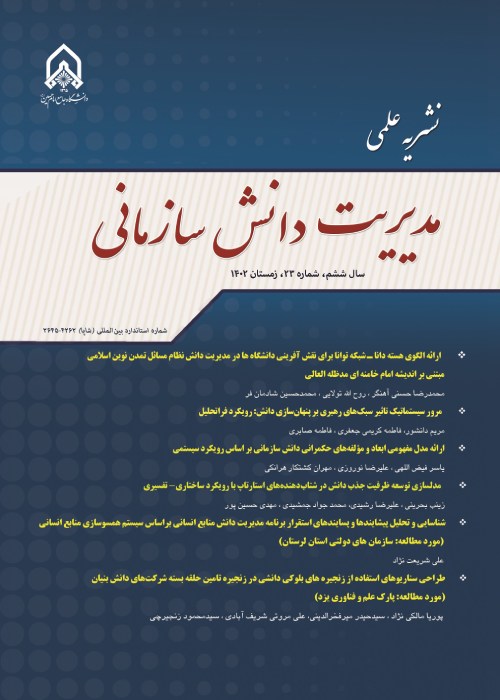An Assessment of the Compatibility of Al-Mustafa University of Qom with the Components of Learning, Agile and Quantum Organizations from the Views of the Employees
The characteristics of today's academic environment are basically different from those of the past. These days, universities are confronted with new phenomena such as technological developments, competitions, increasing expectations of the society and the students, financial constraints, and the growing steep of changes. These situational events, not similar to previous features, have emerged in higher education and require different types of expertise in the new environment and economy. Universities can no longer make students ready for new environmental situations with timeworn structures and strategies. They have to move towards employing modern organizational components. This research is intended to investigate the compatibility of Al-Mustafa University of Qom with the components of learning, agile and quantum organizations. This is a descriptive-survey research whose statistical population consists of all the 300 employees of the central office of the university among whom 168 people were selected by Cochran's formula through stratified random sampling. Three questionnaires of learning organizations, agile organizations and quantum organizations were employed for data collection. Content and construct validity were used to test the validity of the questionnaires. The reliability coefficients of the questionnaires were estimated by the Cronbach's alpha coefficient as 0.94 for learning organizations, 0.88 for agile organization, and 0.78 for quantum organization. Data analysis was performed at two levels of descriptive statistics (frequency, percentage and mean), and inferential statistics (correlation coefficient, t-test and structural equation modeling) by SPSS and LISREL software. The results revealed that the mean of all dimensions of learning organization, except from the components of individual skills, were above average. The mean of all quantum organization components was below the average, and it was above the average for agile organization. Furthermore, there was a positive and significant correlation between learning organization and agile organization (0.66), a positive, and a significant correlation between learning organization and quantum organization (0.22), and a positive and non-significant correlation between agile organization and quantum organization (0.11).
- حق عضویت دریافتی صرف حمایت از نشریات عضو و نگهداری، تکمیل و توسعه مگیران میشود.
- پرداخت حق اشتراک و دانلود مقالات اجازه بازنشر آن در سایر رسانههای چاپی و دیجیتال را به کاربر نمیدهد.


